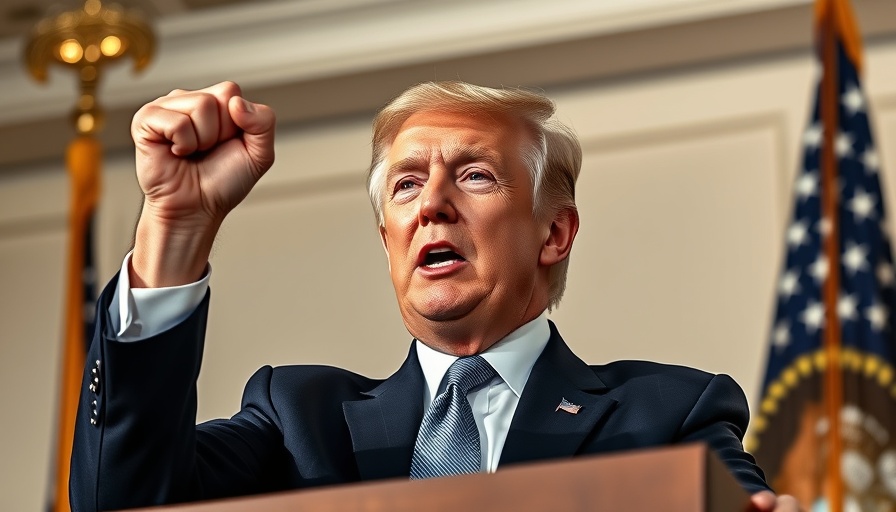
Understanding the Travel Ban: A National Security Move
On June 4, 2025, President Donald Trump formally announced a significant proclamation banning travel from twelve specific countries. Citing national security concerns, the ban aims to tighten immigration and protect U.S. citizens amid rising global threats. Such measures reflect ongoing controversies around the balance of national security and open borders, a theme that has dominated the Trump administration's policies.
The Broader Context of Immigration Policy
This travel ban is not an isolated event; it is part of a broader agenda that includes harsh policies on foreign students and increased tariffs on materials such as steel and aluminum. Many in the Republican party express concern over the implications of such policies on international relations and the U.S. economy, especially in light of pushback over Trump's larger "One Big Beautiful Bill Act," which aims to overhaul tax and immigration systems.
Navigating Opposition: Tariffs and Student Blocks
In tandem with this travel ban, Trump’s administration has implemented higher tariffs aimed at foreign steel and aluminum imports, raising rates from 25% to 50%. Critiques from various sectors regard these tariffs as "unlawful and unjustified,” with economists warning that such measures could provoke trade wars and retaliatory actions from affected nations.
In a related move, Trump also barred foreign students from attending prestigious institutions, such as Harvard, when they seek to learn remotely. Critics argue this impedes educational opportunities for international talent, potentially isolating the U.S. from a vital aspect of its global engagement and economic dynamism.
Future Implications of Trump's Policies
As opposition grows both within and outside the GOP, Trump's radical approach draws significant attention. Legal experts and economists alike are likely to debate the implications of these sweeping reforms, questioning the legality and practicality of such executive actions. The future of U.S. immigration and international standing may hinge on how effectively Congress and political leaders choose to respond to these developments.
For those in sectors like law, accounting, and healthcare, these changes signal potential shifts in the immigration landscape that could influence workforce availability and operational practices in the foreseeable future.
 Add Row
Add Row  Add Element
Add Element 



Write A Comment